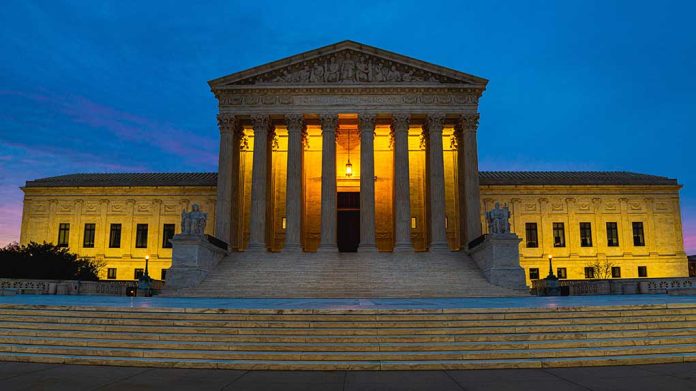
The U.S. Supreme Court is reviewing Tennessee’s ban on transgender medical treatments for minors after hearing arguments, sparking a heated debate on legal and ethical implications.
At a Glance
- Tennessee’s attorney general defended the state’s ban on gender-affirming care for minors in the Supreme Court
- The 2023 law is challenged for allegedly violating the Constitution’s equal protection clause
- The case’s outcome could impact families’ freedom to make medical decisions and the role of politicians in healthcare
- Public opinion is largely against these medical interventions for minors, with 72% of Americans opposing them
Tennessee’s Defense of the Ban
Tennessee Attorney General Jonathan Skrmetti is leading the charge to defend the state’s ban on gender-affirming care for minors in the U.S. Supreme Court. The law, passed in 2023, prohibits specific medical treatments for transgender minors, including puberty blockers and surgeries. Skrmetti argues that the law is designed to protect children from “irreversible, unproven medical procedures” and does not discriminate based on sex.
The state’s brief cites European countries’ restrictions on gender-affirming care as a precedent, highlighting a growing international trend to limit these treatments for minors. Tennessee’s law, known as Senate Bill 1 (SB1), specifically bans puberty blockers, cross-sex hormones, and surgeries for individuals under 18.
The Supreme Court hears oral arguments Wednesday in a dispute over a Tennessee ban on certain medical treatments for transgender children. https://t.co/eFKTP4T3Mv
— Roll Call (@rollcall) December 3, 2024
Challengers’ Arguments
On the other side of the debate, plaintiffs, including families of transgender children, argue that the law violates their constitutional rights. The American Civil Liberties Union (ACLU) and other legal groups represent the plaintiffs, claiming that the law treats people differently based on sex and endangers children by denying them access to necessary medical care.
“We are simply asking the Supreme Court to recognize that when a law treats people differently based on their sex, the same equal protection principles apply regardless of whether the group impacted by the law happens to be transgender.” ACLU attorney Chase Strangio stated
The federal government has also weighed in, supporting the plaintiffs and opposing Tennessee’s law. The Biden-Harris administration argues that preventing minors from accessing transgender treatments constitutes sex discrimination.
Medical and Ethical Concerns
The medical community remains divided on the use of gender-transition treatments for minors. Critics argue that these treatments have unproven claims of being reversible and can lead to serious side effects. Some medical professionals express concern over the long-term consequences of these interventions.
Public opinion appears to align with these concerns, as recent polling suggests that 72% of Americans oppose medical interventions for transgender minors. This sentiment reflects the broader societal debate surrounding the appropriate approach to gender dysphoria in young people.
Potential Implications
The Supreme Court’s decision in this case will have far-reaching implications, not only for Tennessee but for over 20 other states with similar laws. Possible outcomes include upholding SB1, a partial ruling, or a complete rejection of the law. The ruling could significantly impact state regulations on transgender care and either encourage or limit similar bans in other states.
As the nation awaits the Supreme Court’s decision, the case continues to highlight the complex intersection of medical ethics, children’s rights, and the role of government in healthcare decisions. The outcome of this landmark case will likely shape the future of transgender care for minors across the United States.
Sources:
Tennessee’s gender affirming care ban for children goes to U.S. Supreme Court for arguments
Supreme Court Reviewing Gender Affirming Care Ban
Supreme Court Case Exposes Medical Scandal of Epic Proportions













